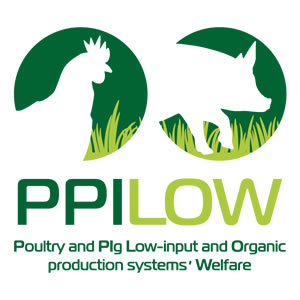The PPILOW project aims to co-construct through a multi-actor approach solutions to improve the welfare of poultry and pigs reared in organic and low-input outdoor production systems.
The project will target nonconventional and outdoor rearing systems with reduced (notably drug) inputs and organic systems (as defined by EU, so considering defined rearing conditions, organic and local feed use and preventative approaches to health management with limited use of chemical inputs).
Although these high-quality systems enable a high degree of expression of natural behaviour by the animals, there are still several welfare issues in organic and low-input outdoor systems that can be similar to conventional systems (e.g. beak trimming in laying hens, the killing of one-day old layer male chicks, and male piglet castration) or more specific to these systems (e.g. exposure to outdoor sanitary threats, piglet survival).

The first original characteristic of the PPILOW project is the participatory approach, involving all actors of the production chain from farmers to consumers, citizens, scientists and policy makers, for proposing, studying and implementing practical solutions (here called ‘levers’) for welfare improvement.

The second original characteristic of the project is to provide a combination of practical solutions for welfare improvement that can be applied on a pan European basis with specific adjustments depending on the target market (national legislation and consumer preferences).

The third original characteristic of the PPILOW project is the multi-criteria assessment of welfare improving practices in order to have an exhaustive view of the global impacts of these practices beyond gains for animal and human welfare.
Activity News Box
25/09/2024 - PPILOW webseries 10th video!
30/08/2024 - The 10th PPILOW newsletter is now available!
23/08/2024 - PPILOW Webseries 9th Video!
29/07/2024 - PPILOW Webseries 8th Video!






